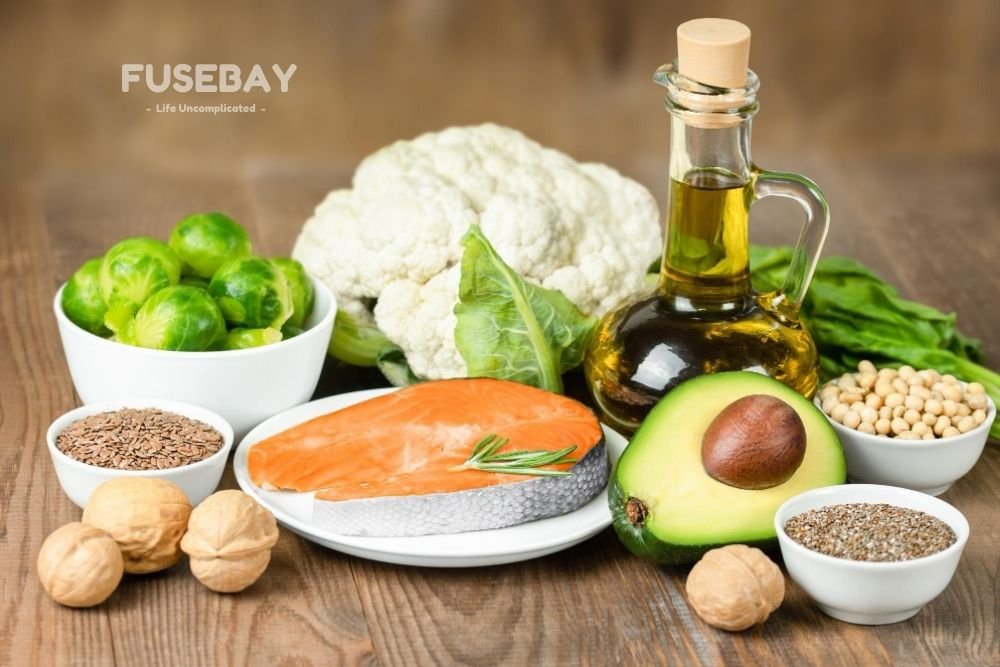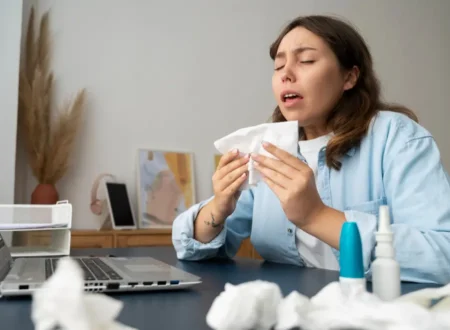Foods That Lower Cholesterol Fast:
Managing cholesterol levels is crucial for maintaining a healthy heart and reducing the risk of cardiovascular diseases. While medication is often prescribed, adopting a diet rich in foods that lower cholesterol fast can provide a natural and effective solution. Certain foods, such as oats, fatty fish, nuts, avocados, and legumes, are scientifically proven to reduce LDL cholesterol while boosting HDL cholesterol. These nutrient-dense options not only improve cholesterol levels but also contribute to overall health. By making simple dietary changes and including these powerful foods in your meals, you can take significant steps toward a healthier lifestyle.
Cholesterol plays an essential role in the body, aiding in the production of hormones, vitamin D, and substances that help digest food. However, when cholesterol levels—specifically low-density lipoprotein (LDL), or “bad cholesterol”—are too high, they pose significant risks to heart health. Elevated LDL levels can lead to plaque buildup in arteries, increasing the likelihood of heart disease and stroke. On the other hand, high-density lipoprotein (HDL), or “good cholesterol,” helps remove excess cholesterol from the bloodstream.
Understanding Cholesterol: A Quick Overview
Before diving into the specific foods, it’s important to understand how cholesterol functions in the body. Cholesterol is carried through the blood by lipoproteins, which are classified into two main types:
- Low-Density Lipoprotein (LDL): Known as “bad cholesterol,” LDL contributes to the buildup of fatty deposits in the arteries, increasing the risk of atherosclerosis.
- High-Density Lipoprotein (HDL): Called “good cholesterol,” HDL helps transport cholesterol back to the liver for removal from the body.
The goal is to lower LDL cholesterol while maintaining or increasing HDL cholesterol. Diet plays a crucial role in achieving this balance.

Top Foods That Lower Cholesterol Quickly
1. Oats and Whole Grains
Oats are often touted as a cholesterol-lowering superstar due to their high content of beta-glucan, a soluble fiber that helps reduce LDL cholesterol. Whole grains such as barley and quinoa also provide similar benefits, promoting heart health by slowing cholesterol absorption in the bloodstream.
- How They Work: Soluble fiber binds with cholesterol molecules in the digestive tract, preventing them from entering the bloodstream.
- How to Use: Start your morning with a bowl of oatmeal or incorporate barley into soups and stews.
- Results: Studies suggest that consuming 3 grams of beta-glucan daily can reduce LDL cholesterol by 5-10%.
2. Legumes and Pulses
Beans, lentils, chickpeas, and other legumes are rich in fiber, plant protein, and antioxidants. They are a low-fat, nutrient-dense alternative to meat and an excellent way to lower cholesterol naturally.
- How They Work: The soluble fiber in legumes slows digestion and reduces cholesterol absorption.
- How to Use: Substitute meat with legumes in soups, stews, and salads.
- Results: Replacing saturated fats with legumes can lead to significant reductions in LDL cholesterol within weeks.

3. Fatty Fish
Fatty fish like salmon, mackerel, sardines, and tuna are rich in omega-3 fatty acids, which are known to lower triglycerides, another harmful fat in the blood, while also improving HDL levels.
- How They Work: Omega-3 fatty acids reduce inflammation and slow the formation of plaque in arteries.
- How to Use: Include at least two servings of fatty fish per week by grilling, baking, or steaming.
- Results: Regular consumption of fatty fish has been linked to a reduction in LDL cholesterol and overall heart disease risk.
4. Olive Oil
Extra virgin olive oil is a staple of the Mediterranean diet and is known for its cholesterol-lowering properties. It is rich in monounsaturated fats and antioxidants.
- How They Work: Olive oil replaces unhealthy fats, reducing LDL cholesterol and protecting against oxidative damage.
- How to Use: Drizzle olive oil over salads, use it as a cooking oil, or dip whole-grain bread into it.
- Results: Regular use of olive oil can lower LDL cholesterol by up to 10%.

5. Nuts and Seeds
Almonds, walnuts, flaxseeds, and chia seeds are excellent sources of healthy fats, soluble fiber, and plant sterols. These nutrients work together to reduce LDL cholesterol levels.
- How They Work: Plant sterols block the absorption of cholesterol in the intestines, while healthy fats improve the lipid profile.
- How to Use: Snack on a handful of nuts or sprinkle seeds on yogurt, oatmeal, or salads.
- Results: Eating a small portion (1-2 ounces) daily can lower LDL cholesterol by 5-15% over time.
6. Dark Chocolate and Cocoa
Dark chocolate with a high cocoa content (70% or more) contains flavonoids, which are antioxidants that improve cholesterol levels.
- How They Work: Flavonoids increase HDL cholesterol and protect LDL cholesterol from oxidation.
- How to Use: Enjoy a small piece of dark chocolate as a treat or add unsweetened cocoa powder to smoothies.
- Results: Consuming dark chocolate in moderation has been linked to improved heart health.

7. Fruits Rich in Soluble Fiber
Certain fruits, such as apples, oranges, pears, and berries, are particularly effective at lowering cholesterol. They contain high levels of pectin, a type of soluble fiber that binds to cholesterol in the digestive system.
- How They Work: Soluble fiber in fruits reduces cholesterol absorption and improves gut health.
- How to Use: Enjoy these fruits as snacks, blend them into smoothies, or add them to breakfast cereals.
- Results: A daily serving of high-fiber fruits can significantly lower LDL cholesterol levels.
8. Green Tea
Green tea is loaded with catechins, antioxidants that reduce LDL cholesterol and improve arterial function.
- How It Works: Catechins reduce cholesterol absorption in the digestive tract.
- How to Use: Replace sugary drinks with unsweetened green tea.
- Results: Drinking 2-3 cups daily has been shown to lower LDL cholesterol and improve HDL levels.

9. Avocados
Avocados are packed with monounsaturated fats, which are heart-healthy fats that help reduce LDL cholesterol while maintaining or increasing HDL cholesterol levels.
- How They Work: The monounsaturated fats in avocados replace saturated fats in the diet, improving the lipid profile.
- How to Use: Add sliced avocado to salads, and sandwiches, or blend them into smoothies.
- Results: Studies show that eating one avocado daily can reduce LDL cholesterol by 13.5 mg/dL in just a few weeks.
10. Garlic
Garlic contains allicin, a compound known for its medicinal properties, including its ability to lower cholesterol levels.
- How It Works: Garlic reduces cholesterol production in the liver.
- How to Use: Add fresh garlic to your dishes or take garlic supplements under medical supervision.
- Results: Daily garlic consumption can lead to modest reductions in LDL cholesterol over time.

Combining Cholesterol-Lowering Foods for Maximum Impact
Combining these foods in your daily meals can amplify their benefits. Here’s an example of a daily menu:
- Breakfast: A bowl of oatmeal topped with berries and chia seeds.
- Snack: An apple with a handful of almonds.
- Lunch: A salad with leafy greens, avocado, olive oil, and grilled salmon.
- Dinner: Lentil soup with a side of whole-grain bread.
- Dessert: A small piece of dark chocolate with green tea.
Lifestyle Changes to Enhance Results
While diet plays a central role, lifestyle changes are equally important for managing cholesterol levels. Here are additional tips:
- Exercise Regularly: At least 30 minutes of moderate aerobic exercise daily.
- Manage Stress: Practice mindfulness, yoga, or meditation to reduce stress-induced cholesterol spikes.
- Quit Smoking: Smoking lowers HDL cholesterol and damages blood vessels.
- Limit Alcohol: Moderate consumption of red wine may improve HDL cholesterol, but excessive drinking increases triglycerides.
Conclusion:
Incorporating foods that lower cholesterol fast into your daily diet is a natural and effective way to improve heart health and reduce the risk of cardiovascular diseases. By including nutrient-rich options like oats, fatty fish, nuts, legumes, and avocados, you can actively lower LDL cholesterol levels while boosting HDL cholesterol. These foods and healthy lifestyle habits such as regular exercise and stress management offer a sustainable path to better overall well-being. Start making these simple dietary changes today to see fast and lasting results.
Discover amazing information and unique finds on FuseBay! Don’t miss out—visit our website for exclusive articles and top-notch blogs tailored just for you!
FAQs About Foods That Lower Cholesterol Fast
1. What are the best foods to lower cholesterol quickly?
Foods rich in soluble fiber, healthy fats, and antioxidants are most effective at lowering cholesterol quickly. Examples include oats, fatty fish, nuts, avocados, legumes, and olive oil.
2. How long does it take to see results from eating cholesterol-lowering foods?
Most people notice a reduction in cholesterol levels within 4-6 weeks of consistently incorporating cholesterol-lowering foods into their diet, though individual results may vary.
3. Can I lower cholesterol without medication?
Yes, many people can lower cholesterol naturally by making dietary changes, exercising regularly, maintaining a healthy weight, and avoiding smoking and excess alcohol. However, consult your doctor to determine the best approach for you.
4. Are there any foods I should avoid to help lower cholesterol?
Avoid foods high in saturated fats and trans fats, such as fried foods, processed snacks, fatty meats, and baked goods made with hydrogenated oils, as they can increase LDL cholesterol.
5. How much of these cholesterol-lowering foods should I eat daily?
The quantity varies depending on the food. For example, 1 cup of oats, a handful of nuts, or 2 servings of fatty fish per week are typically recommended. Consistency is key to seeing results.







